
*Ketty Lester of Hope, Arkansas, came to international prominence as a strikingly beautiful and elegant Black woman with a strong ivory smile, eyes of wonder and a slender physique, singing a tender 1962 love song with spiritual undertones entitled “Love Letters.” The now-classic Grammy-nominated recording mesmerized people in America, the U.K., Japan and beyond.
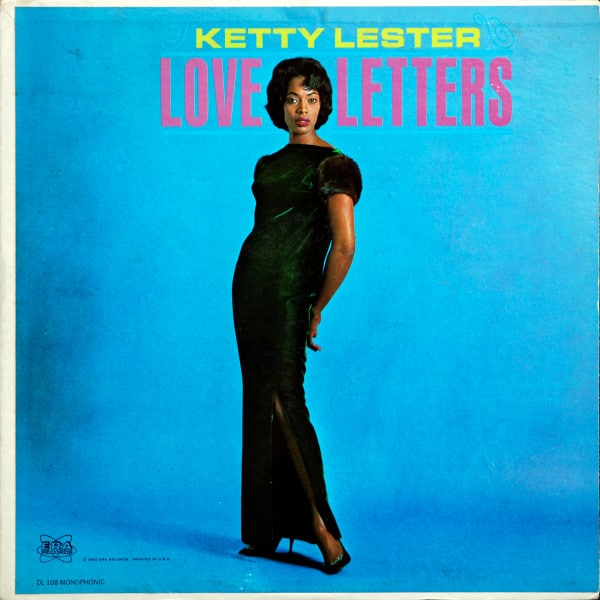
Though she recorded a few more albums in the decade, that aspect of her career took a back seat to her segue into stage (a tour of Italy with Cab Calloway and a role in a production of “Cabin in the Sky”), television (“Groucho Marx: You Bet Your Life,” “Julia,” “The Bill Cosby Show,” “Sanford and Son,” “Room 222,” “Love American Style,” “Little House on the Prairie” and “Brewster Place”), movies (the unforgettable role of cabbie ‘Juanita’ in “Blacula” plus cameos ranging from “Uptown Saturday Night” to “House Party III”) and commercials.
MORE NEWS ON EURWEB: What Paul Dano & Jeffrey Wright (‘The Batman’) Learned About Each Other | WATCH
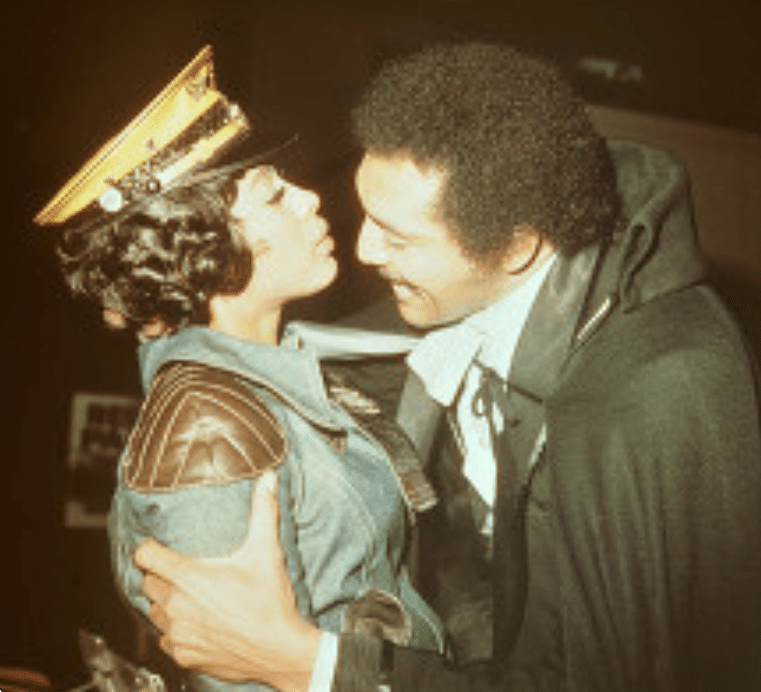
In daytime TV, her role on the soap opera “Another World” marked the first time a Black couple with two children were regular characters in the genre. So, you may not remember the name Ketty Lester, but in one of those entertainment arenas, you surely have encountered her.
On Sunday February 20, the Hollywood Heritage Museum held a SOLD OUT, SRO salute to Ketty Lester featuring extensive clips of her work, a fun introduction by ventriloquism team Willie Tyler & Lester, a Q&A and special remembrances from “Little House” cast member Alison Arngrim.
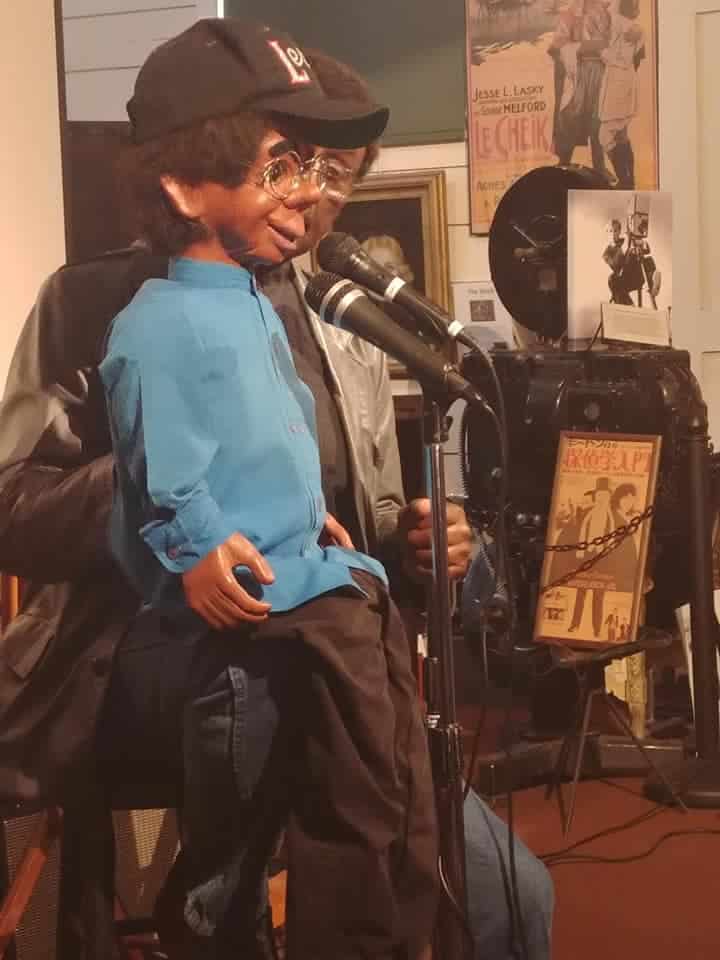
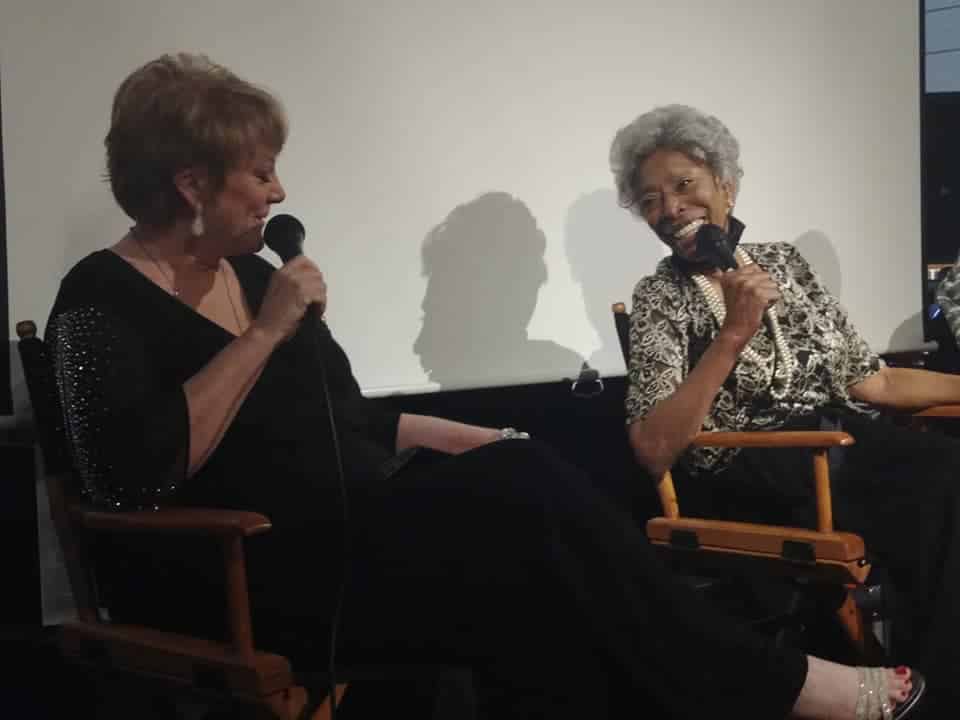
Kudos are in order to the entire museum team for feting her with so much love and thoroughness, it brought the lady to tears. Ms. Lester also sang two numbers from her chair to guitar and bass accompaniment: the sorrowful “Cracker Box Livin’” and “Love Letters.”
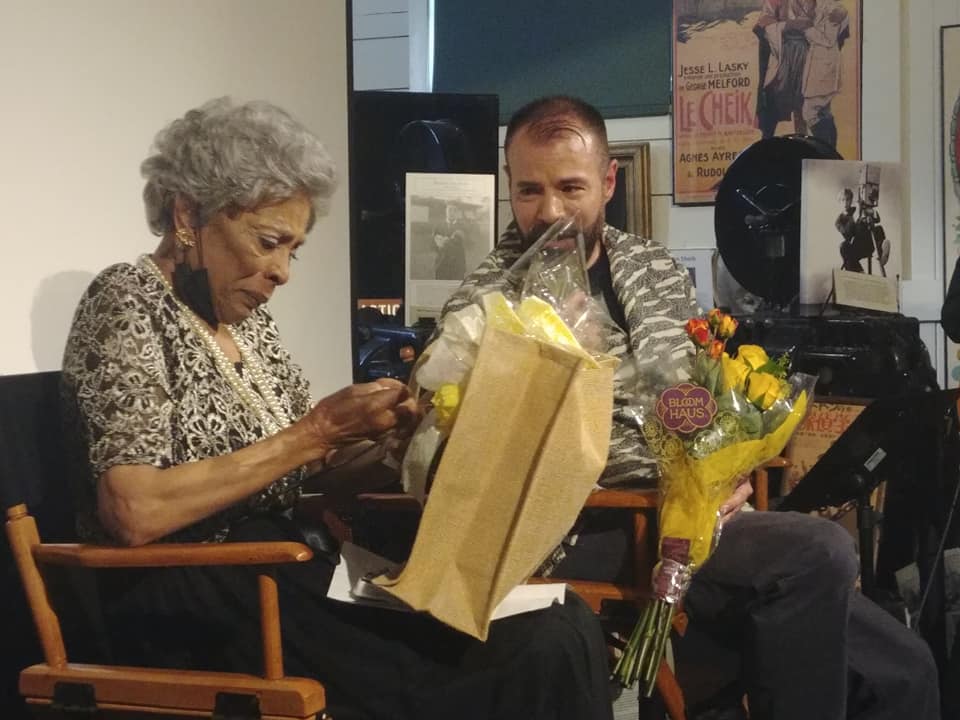
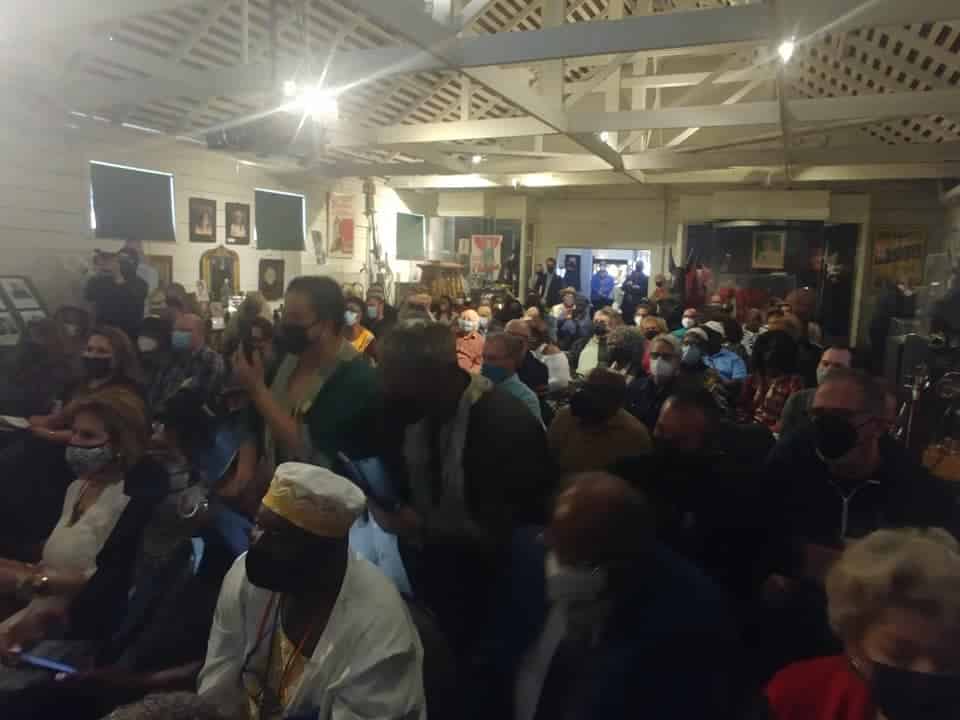
This writer had the honor of interviewing Ketty Lester in the home of family. My primary purpose was to discuss the succulent bite of her small part in “Blacula.” However, in preparation, I read her memoir and learned so much more. I’m saving the “Blacula” material for another project, but for Women’s History Month, I am pleased to share some mind-blowing gold bullion from the life and times of a TRUE Black Living Legend. May they inspire you to purchase her book, seek out her songs and filmography.

Scott: Because you are from another era of Hollywood, I was fascinated to learn your birth name is Revoyda Frierson.
Ketty: My mama named me Ojava. I liked that name but the teacher at my school said, “You can’t name that child that! That’s some weird African name!” Down in the country, teachers held a lot of power. That teacher – a Black woman – renamed me Revoyda…a curse to me all my life! Every time they asked you your name, you had to spell it then pronounce it.
Scott: I love the name Ojava! It brings to mind thoughts of coffee: strong, black and beautiful! Did the name have a meaning?
Ketty: It did not have a meaning to us…but I loved it. If I had kept my name Ojava and then Obama became President…who knows?
Scott: What inspired you to want to write this book?
Ketty: I would tell people at my church some of the experiences I had. They’d say, “You ought to write a book about that!” I started trying to write it but I’m not a good speller. One of my friends at the church helped me get that book started. Her name is Josephine Drake. She said, “Just tell me the stories and I’ll type them.” But I couldn’t find anybody to publish it.
Then my husband died and I started going to another church. They told me about this Black woman who could publish it. But I don’t know if I get any royalties from what she published. Now I have a new version. I took out one personal family saga I did not want to share… We had an argument. So, I rewrote the story. Just before the virus came, we were going to have a book signing in Compton. The virus cut all that out. So, it’s just been me trying to get the book sold.
Scott: Your childhood is fascinating as the youngest of 15, just like Gordon Parks.
Ketty: That was the joy of my life. I was hardheaded, though. My daddy had to whoop me. I still have a scar. They were strong back then. You raised your kids. You didn’t play around. That was just the rule.
Growing up, I was the baby but I always had to take care of Ernestine and Maddie. That was my job. We raised cotton. Ernestine never could keep up. I had to always go get her and catch her up then go back and get my row. Also, like me, one of my brothers has epilepsy. So, I was always near my mother. She was a hard-working woman. I don’t know how she made it. She had asthma yet had to cook for all of us. She lived to be 89. And my father lived to be 92.
Scott: Were you a singing family?
Ketty: In my family most of us sang. From a child, I just thought either you could sing or you couldn’t. My brother Frank was better than me. My sister Berniece was a good singer. Now, Ernestine – she couldn’t do nothin’! I was known in Hope as a singer. When I was in high school, there was a trio with me, my sister Eva Pearl and her friend Nona Jean Tyus (now Hicks). Anytime they had a program, they expected us to sing. So, when Miss Naomie, the music teacher at the school who put on all the programs, said she wanted a trio for something, she got us. We didn’t have a name. We were just the trio. I sang alto, Eva Pearl sang soprano and Nona Jean was our third voice. But when it came to the verses, Miss Naomie always said, “‘Voyda’s gonna sing the verses.” I learned everything from singing in church and from Miss Naomie. There was also a lady named Mrs. Hicks who taught me how to read music but I never really learned how to play it.
I finished school in 1954 at Yerger High School in Hope, Arkansas. That was the first Black high school built west of the Mississippi River by Henry C. Yerger. I got a scholarship to Smith…but by being from such a big family, there were two sets of us that were in the same class. My sisters Berniece and Ernestine were in the same class. And my sister Mattie and I were in the same class – even though our ages were different. Even though I was the baby, I had to take care of Mattie.
I wasn’t much into boys but I wasn’t into girls either. I was a loner. I was a protector of my sisters. When my sisters and I finished school, my brother Haywood took us to San Francisco.
Scott: Did you immediately try to get into “Show Business?”
Ketty: That really wasn’t what I wanted to do. It’s what I thought would be best for me to study. I wanted to be a nurse and help people. I studied nursing…but they weren’t taking many Blacks. They’d let you take care of people (in their homes). But I wanted to study and work in a hospital. When I went to San Francisco and the counselor saw that I was from a Black school in the south, she didn’t guide me to the right classes. She just told me, “If you want to study nursing here, you have to have three science classes.” One class was called Science 1A. I figured since it was 1A, that was the beginning. Wouldn’t you know, that was actually the final class. The counselor never explained that. And, of course, I was not prepared.
On the day I went back to the office to drop Science 1A, I saw a white boy in the hall. I said, “Do they have any music classes in this place?” He said, “Oh yeah – all kinds. We have one of the greatest choirs in the world.” He told me where to go – City College.
The director was a white man named Dr. Hines. He said, “What do you sing?” I said, “Anything you want!” He put me with the sopranos. He figured anyone who had that strong a belief in themselves must be a soprano! We were singing anthems…but as we went along, a woman at my church said, “Ketty would you like voice lessons?” I said, “No. With singing, either you can or you can’t.” She said, “No, there is a lesson to teach you how to sing. You have a three-octave range but you don’t know what you’re doing with it.” I said, “I don’t have money for voice lessons.” She said, “Did I ask you for any money?!” I said, “Then I’ll take them!” I always took anything that was given to me. She taught me scales, classical songs, opera and stuff like that.
After I was asked to lead a choir in a program at UC Berkley, that’s where I met the managers of a nightclub called The Purple Onion. They asked me if I wanted to go professional. I didn’t know what that meant but I took their card. Then my sister got pregnant and my brother refused to take care of another man’s child. Now we needed extra money.
First, I went to the shipyard to get a job because that was work my father had done. But I was too young. Then I went to the post office because my sisters and I once worked in the post office during the Christmas season. No job. I went downtown looking for a job just sweeping up the stores. No job. Then I thought, “Where is that man’s number?!” I called him and said, “Is the job still open?” He said, “When do you want to start?” I said, “Tonight, if it’s open!” He said I could start on Monday.
Scott: How did you develop a nightclub act having never been in a nightclub?
Ketty: There was one singer I liked that I had heard. She wrote the song “God Bless the Child” – Billie Holiday. And I also liked Louis “Satchmo” Armstrong who sang way down low in his range on “Route 66.” I found my voice between those two. I had to find a sound for myself. I brought it down to between bass and opera, and that became my sound for a Pop song. I figured, “Ain’t nobody gonna wanna hear no opera in a nightclub!”
I was singing with just a pianist at The Purple Onion. I’d come an hour early so he could help me pick songs. There was a music store near Chinatown. I would take the bus, stop in, find different songs and he would play them. I was very fast in learning. Very quickly I had 5 or 6 songs.
At The Purple Onion, Phyllis Diller was a pioneer for women in comedy. I went on first. Phyllis was next. Phyllis was not funny at that time… but she looked funny! Then the star of the show was Maya Angelou – singing Calypso songs.
Scott: I’ve seen her Calypso album she cut early in her career. Was she good?
Ketty: When we first started, she was a little snooty. She said she was from… Jamaica. I thought it was a foreign country! So, I was real interested to get to know her. One night, I knocked on her dressing room door and said, “Ms. Angelou. Hi, I’m Ketty. My it’s so nice to meet someone from another country.” She just laughed! She said, “I’m from Arkansas – just like you!” I said “No-No-No, you’re from Jamaica. And I want to learn to sing some of those songs you sing. Where do you get them from?” She said, “I make them up as I go along!” Then she asked me, “Do you know where Stamps is in Arkansas? I said, “Stamps? They don’t even have a railroad!” We became great friends.
I later met Sammy Davis, Jr. there, too. He came to see Maya and said to me, “You’re a good singer!” I didn’t care about all that. I said, “May I take a picture with you, Mr. Davis?!” And he did.
Scott: How did you get to Hollywood?
Ketty: The managers of The Purple Onion opened another location in Hollywood at Sunset & La Brea. They relocated me and I sang there for almost two years. I’m the one who kept the doors open. Maya came down and opened for me!

Then I was invited to sing at Ye Little Club in Beverly Hills. I never felt like a star because I never worked among my (Black) people. Most of my people worked on Central Ave. I was in Beverly Hills and Hollywood where nobody knew me, I have no idea why. But I was separated. All the white entertainers came to Ye Little Club after their shows for drinks. That’s where I met Dorothy Shay. She wanted to be my manager. It was odd having a hillbilly singer wanting to manage me. But she’s the one who gave me my stage name: Ketty Lester.

Scott: I was disturbed to read that your hit “Love Letters” and the whole album of material around it were songs you were duped into recording as “demos” with no contract…only for them to release them behind your back on Era Records. Insult to injury, once you had a hit and there should have been a bidding war for you, they sold you AND the masters of your music to RCA Victor where you received no royalties for a Grammy-nominated international million-selling hit. The stories of you being exploited throughout your early career are infuriating!
Ketty: I didn’t know anything… Later, I went to an agency. They said, “You’re going to make a commercial. You’ll get most of your money as the commercial gets aired.” I thought, “O.K.” I made so many of them television commercials. I remember Tide (a laundry detergent). I have a picture of me holding some kind of Miracle 405 spray. All I knew was I had a job that would pay a certain amount. Martin Luther King was out there talking “equality” so hiring me was their way to shut them up. But they didn’t play my commercials very much…
Scott: What was your relationship with Lena Horne who once recorded for RCA?
Ketty: One day I got a job in Oregon for four weeks. When I got back, Dorothy took me to meet Lena Horne who was performing at The Cocoanut Grove (the performance auditorium of the Ambassador Hotel on Wilshire Blvd.). She heard me sing and was very kind. And when I put my record out, she came to Beverly Hills to see me after one of her shows.
Scott: Were you befriended by any of the Black Hollywood divas at the time?
Ketty: Nancy Wilson I knew – she lived close to me but we were never what you call friends. I knew Barbara McNair. Dionne Warwick I only met one time. I knew Mary Wilson. She was a darling friend. I did a show with a bunch of rock and roll singers in Tennessee. I began to sing “Love Letters” and Mary started crying. Everybody started crying. They had to stop the show. I said, “What are you all crying about?” [Note: Mary lost her 14-year-old son, Rafael, in a car accident with Mary at the wheel. Ketty’s song “Love Letters” was playing on the radio when it happened.] Mary said, “When you started singing it, I went back to that moment…”
Dr. Maya Angelou was the closest friend I ever had. But once she went with Oprah, I never saw her again.
Scott: Why are you not better known in the Black community?
Ketty: I never felt like a star…because most of my people didn’t know me. Coming from Arkansas, you would think I would have sold all my records there. They didn’t know who Ketty Lester was. As a child, I was Revoyda Frierson. When my records came out as Ketty Lester, nobody knew who I was. Most of them didn’t have TVs back then. And if they did, they wouldn’t have recognized me because I was wearing wigs and such. So, I have never really been known among my people.
When Hope, Arkansas finally recognized me, they had a school reunion and invited me. I had some CDs made up so they could buy them for rebuilding Hope High School. I said, “Buy these records and help the cause.” They gasped, “Ketty Lester?!” I said, “That’s me!”
(visit www.kettylester.com “For all things Ketty!”)
A. Scott Galloway
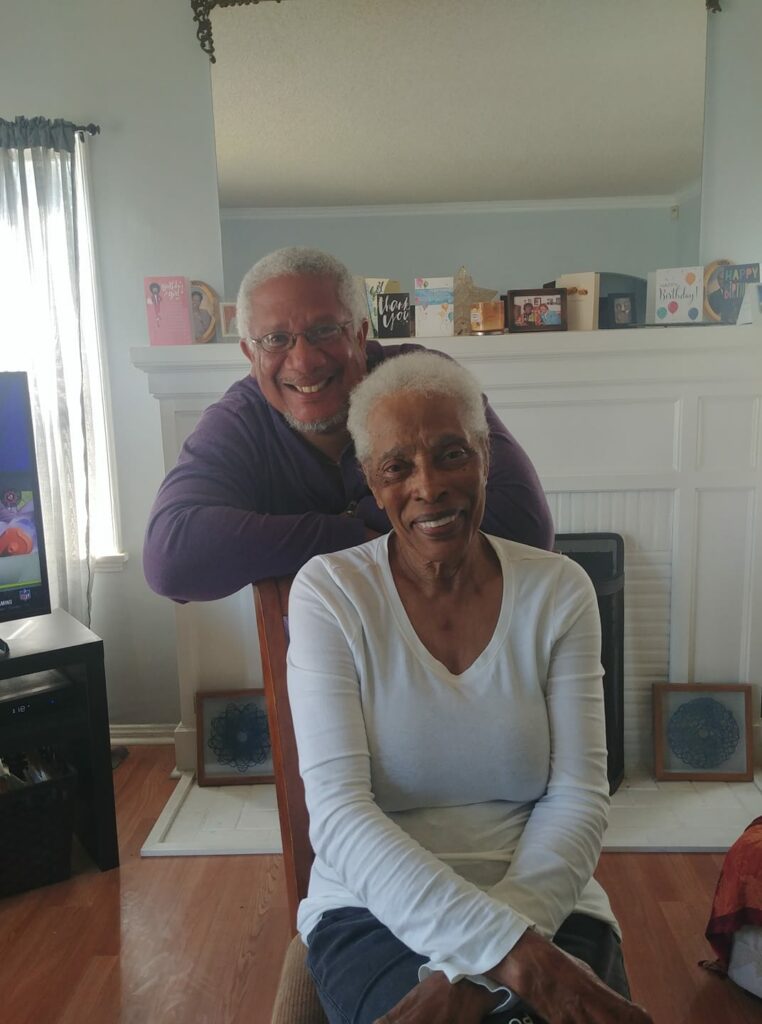
We Publish News 24/7. Don’t Miss A Story. Click HERE to SUBSCRIBE to Our Newsletter Now!





